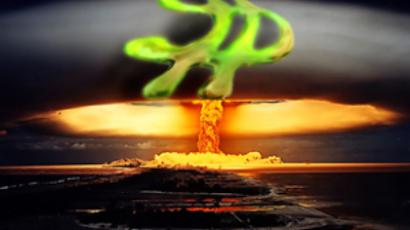Russian state won’t step into Norisk Nickel row
Russia’s government will remain neutral in the Norilsk Nickel dispute, with the company itself expressing doubts about Rusal’s credibility.
Authorities made the remark during the visit of Russia’s Prime Minister Vladimir Putin to Norilsk on Tuesday.
Norilsk Nickel is currently the subject of a battle for control between its two biggest shareholders: Rusal Chief Oleg Deripaska, and head of Interkos Vladimir Potanin. The two billionaires each own 25% of Norilsk and want to buy the other out.
Putin noted that the conflict was damaging the company, and a solution was urgently needed. However, the government insists it will not force the issue as long as Norilsk Nickel continues to operate successfully. Igor Sechin, the Russian Deputy Prime Minister, also said Russia’s government wouldn’t interfere unless it damaged the overall economic environment.
“The core shareholders will be coordinating their own positions. We don't meddle in corporate processes – that's the shareholders' business. But if [the shareholder conflict] has a negative effect on the socioeconomic situation in Norilsk, then we will review our position on this issue,” he said.
The dispute appears to boil down to a difference of opinion about how Norilsk Nickel should be run and who should benefit. Commenting on the situation with Norilsk Nickel, Potanin said that in his view it wasn’t really a conflict, just different approaches to the company’s management.
“For me personally there is no conflict, despite its obvious reflection and splashing in the media. There are differing approaches to how the enterprise should develop and run itself.”
“One difference in those approaches is that we think incorrectly the method of [shareholder] interference in the company’s operating activity,” Potanin said.
Vladimir Strejalkovsky, CEO at Norilsk Nickel, also says the different interests of the parties are the main problem.
“The conflict is due to a difference in interests. One side wants a gradual development of the company, to improve environmental and social conditions. While the other one wants to take everything there is in the company. And even more. I'm against taking all the money out. This may benefit shareholders right now, but in the next years the company won't be able to develop.”
However, Strejalkovsk left little doubt as to which shareholder he was favouring as he referred to the 29% drop in Rusal's share price since the beginning of the year.
“Since the beginning of the year Norilsk Nickel has been the only company to increase its share price 23%. Others have a negative dynamic. The leader among them is the person you just interviewed (Oleg Deripaska) with a 29% decline. The person who tells us how to work, how to control our company – he's the leader among the losers. Now, whatever he says we listen to through the prism of a person who did not succeed in managing a company successfully. We have the world's highest dividends – 50%. Seven to eight percent is the world's average and everyone's happy. Here, for some people, 50% is not enough.”
And whatever the outcome of the conflict, it is unlikely to cost Oleg Deripaska anything, says Ryan Dodd from Specialized Research and Investment.
“Deripaska has an asset; he needs to monetize the asset. So, if he does nothing, he still keeps the asset. But if he creates a lot of noise around the asset, the asset could be bought. And if it’s bought at a good valuation, he can pay off all his other debts.”













